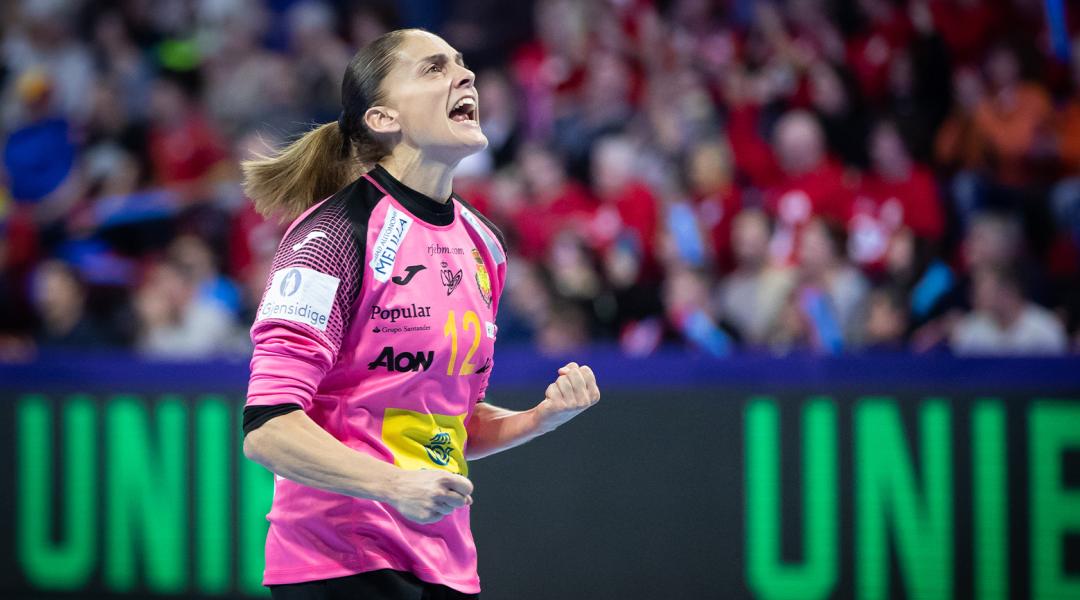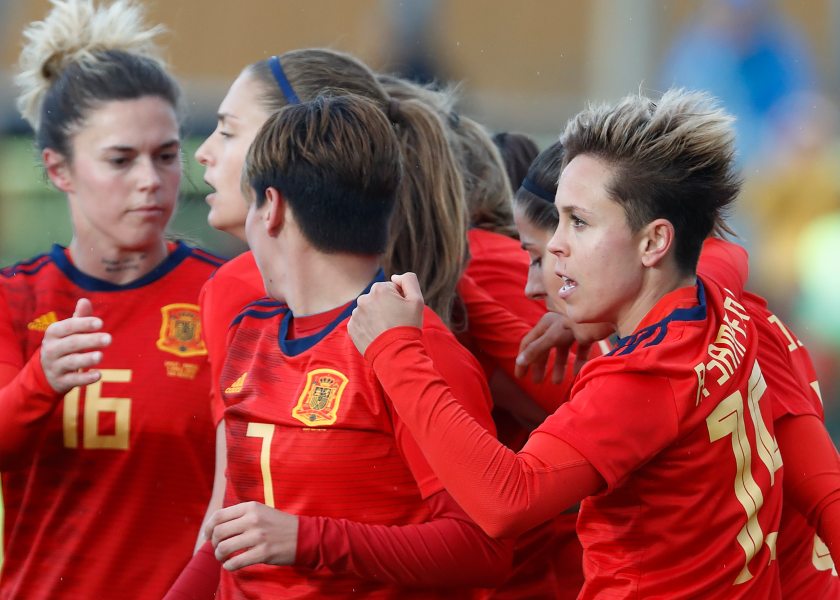Silvia Navarro
Unstoppable Warrior

The World Cup in Japan in December, the one in Spain in 2021, entering the top-5 players with the most matches in the women’s handball – these are some of the goals that the captain of the national team, Silvia Navarro (Valencia, 1979), has set for herself for the immediate future. The veteran goalkeeper doesn’t know if she will reach them all, but she talks about them with the same enthusiasm with which she continues, twenty years on, to defend her ‘three posts’, as she calls the goal.
Silvia Navarro (Valencia, 1979) also never lets up promoting women’s sports, and she still has time to enjoy her home, combining family life with a long and prolific history on the pitch that seems to never end. Let's know how she achieve's it.
You made your debut with the Spanish Women’s Handball Team in 1998. After twenty years, what does it take to keep performing at the highest level that long?
I think you need a little bit of everything. My body is still strong and my enthusiasm is as big as ever, although, at 40, I need to take care of myself a little more. That, together with playing sports and leading a healthy life, is the main thing.
And in all these years, how has Spanish women’s handball evolved?
A lot has changed. Before, things worked differently. The Nordic women were the leaders both technically and physically, but, over the years, Spanish women’s handball has caught up with them. It’s getting better every year – a lot more work is being put into match preparations and training, and it shows. We’ve taken some very important steps forward over the past two decades.
Are women’s handball and other sports being encouraged enough?
We are not equal to the boys. We are still light years away. We’re taking small steps that seem very big, but actually they are tiny. It’s true that there’s a lot more coverage than there was a few years ago and I hope it will increase, because we have to leave a good basis for the generations to come. You have to look ahead and keep going.
You are known as Las Guerreras (‘The Warriors’), a nickname you apparently feel comfortable with.
It started when we got the bronze medal in the Brazil World Cup 2011, which also landed us a spot in the qualification tournament for the Olympics. The Federation organised it in Guadalajara, we played for our lives and for a ticket to the Olympics, and that’s when they gave us the nickname. The Federation came up with it and it fit us like a glove, because with all our shortcomings or technical inferiority compared to other teams, we do know how to battle. We have a lot of temperament, which enables us to fight in every game.
You are a mother, how do you combine playing an elite sport with family life?
It’s not that complicated. The hardest part is the traveling, being away from home. Sometimes I even want to put my picture on the fridge at home because they say: “You spend a month and a half with the selection and we don’t see you.” The children are growing and you realise that you spend a lot of time away from home, but it can be perfectly combined. For example, team trainings are in the afternoon and in the morning I have a physical trainer for myself, and I try to combine maternity and elite sport as much as I can. If your home base is solid, it is fully compatible.

The Spanish handball team’s goalkeeper is still as fiery as she was on her first day on post, back in 1998. © RFEBM
“It wouldn’t be fair, neither as a professional nor as an athlete, to keep dragging myself to the national team, just to achieve a certain number of caps”
The World Cup in Japan is approaching. What are your expectations?
We’re moving step by step. Carlos Viver (the Spanish Women’s Handball Team manager) is always telling us to. It was very important to get qualified against Iceland, which wasn’t easy at all. Now it’s time to think about how to give it our very best. We have to keep in mind that the World Cup can earn us a spot for Tokyo, or at least get us into the qualification rounds, and we know that we’ll have to play like our lives depend on it.
As a veteran and captain, are the sensations before a great championship with the selection different from your first time?
On a sporting level, the essence is the same, but it is true that media-wise, things have advanced a lot. Everything is being done at a much bigger scale, and better: the players, the level of play, the organisations and the settings. It’s all much more special now, in that sense. A World Cup like it’s done now would be unimaginable a few years ago. Personally, I’m still as nervous as on the first day I played with the national team. You still feel the nerves, whether you play or not, whether you’re in the field or on the bench. You go out to compete and the feeling is the same as the first time.
Although you have almost 200 caps, Marta Mangué’s 301 still seem out of reach. Is entering the top-5 of players with most caps one of your goals?
Marta Mangué is one of a kind and has achieved everything. What am I going to tell you about Marta! She is the most renowned player in the national team. I don’t think about reaching any number of caps, but about being well. If Carlos Viver wants to count on me, I will be there, as long as my body allows me to and I feel like playing, and I will go as far as I can. I’d rather focus on the day to day and on being on top form. I don’t want to keep dragging myself to the national team, just to achieve a certain number of caps. It wouldn’t be fair, neither as a professional nor as an athlete.
The 2021 World Cup will be held in Spain, and it promises to be something very special. Could it be Silvia Navarro’s final performance with the national team?
I don’t know. I don’t know if I will get there, nor if they’ll call me. What I do know is that the World Cup in Spain is going to be very special for the players who are going, and they should enjoy it. It’ll be a great opportunity for people here to see it.
With such an extensive career, what’s the best thing that handball has given you?
I have very good memories throughout my career. My debut, winning my first league, the world bronze with the national team, runners-up in Europe, the Olympic bronze medal in London, the two titles with my team this year. I feel very lucky, regardless of the titles: playing handball is the reward, it’s been my life and it always will be.


